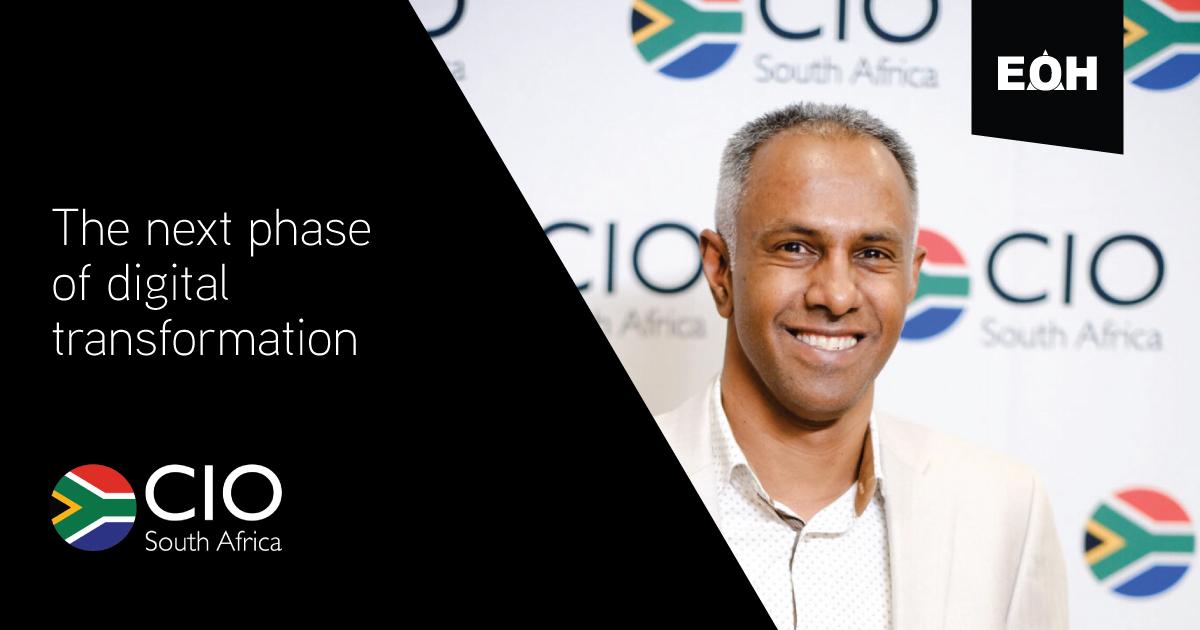EOH’s Ziaad Suleman talks about the emerging technologies that will give businesses a competitive edge.
EOH has reached stability and considers itself a business at the forefront of the Fourth Industrial Revolution (4IR). Managing editor Reabetswe Rabaji sat down with Ziaad Suleman, chief commercial officer of the group, to learn why businesses need to step up their digital transformation and which emerging technologies will give them a competitive edge.
Q: Digital transformation has become an overused and often misused term. Is digital transformation in the true sense of the word still relevant for business?
A: Yes indeed. Businesses still need to grapple with digital transformation to remain relevant and thrive in the digital economy. This transformation is not only about updating technology but developing strategic thinking and business culture. New ways of thinking prepare the way for new ways of working, which is such a big trend today.
Q: What happens to businesses that neglect their own digital transformation?
A: Quite simply, they get left behind and may well lose their relevance. Business leaders who don’t take advantage of the opportunities of the digital era are forgoing growth and retaining talent. Increasing innovation and constant good disruption in business means that leaders need to be agile, ensuring that their offerings and business models are relevant and essential.
Q: How is the digital economy changing the dynamics in business?
A: In a digital world where business can’t only count on customer loyalty, business leaders must ensure that their connectedness to their customers is based on the quality of their offering, on customer-centricity and ease of service, on fairness and value. Added to this is the requirement of customers, whether it be consumers or business, requiring instant service with zero latency. In order to achieve the same, one needs to rely on technology to obtain efficiencies and scaling. No longer can business be totally independent and self-fulfilling. Like technology requires integration,it is about building out a value-added ecosystem of partners that are complimentary.
Q: How should business leaders make sense of these shifts?
A: To unpack these complexities and make the correct business decisions, one cannot rely on one’s own business or industry insights. We need to augment the same with data and artificial intelligence to enable rational, data-driven decision-making. Because the volume, variety and velocity of data is now unparalleled and increasing exponentially in complexity, it is essential to have a strategy to unpack both structured and unstructured data. The insights gained from data analysis can help businesses strategically differentiate themselves. Equally important in the digital age is the building of platforms to leverage scale and to disrupt traditional partnering models in the industries where you operate.
Q: Which digital trends do business leaders need to watch this year?
A: A multitude of technologies are converging in the fourth industrial revolution (4IR), bringing us tremendous benefits and insights. We have data and artificial intelligence (AI) including ChatGPT, the cloud, the Internet of Things (IoT) including sensor technology, 3D printing, automation, blockchain and many more. These technologies provide us with better solutions, whether as a consumer, enterprise or society.
Q: Let’s get into the nuts and bolts of current tech developments. How will computing power take us into the next phase of digital transformation?
A: In this interconnected world where devices, appliances, computer systems and machines speak to each other and produce masses of data that require instantaneous processing, high-performance or Quantum computing is fundamental to the evolution of digital transformation. It requires considering optimally integrated systems, whether they are on-premise, off-premise or hybrid in the cloud. As the Data complexity increases and 5G and 6G take effect, the need grows for better computational power and ESG measures.
Q: Going back to data. Why are data and data insights the key differentiators in business?
A: Masses of converged data from multiple sources such as mobile, email, social channels, workloads and sensor technology have value that can be unlocked through deep learning, machine learning and other forms of AI. Therefore, together with other aspects of the 4IR, the key elements of AI such as natural language processing, expert systems, robotics, intelligent agents, and computational intelligence must be infused into solution sets. The ultimate value derived from data insights depends on how business leaders apply those insights.
Q: EOH is at the cutting edge of the 4IR. What are you offering businesses that want to accelerate their digital transformation?
A: We offer the end-to-end capability of supporting customers along their digital journey including infrastructure, managed services, software solutions, operational technology, digital enablement and skills. We lead with advisory to co-create solutions that achieve customer objectives through our dedicated expertise.
